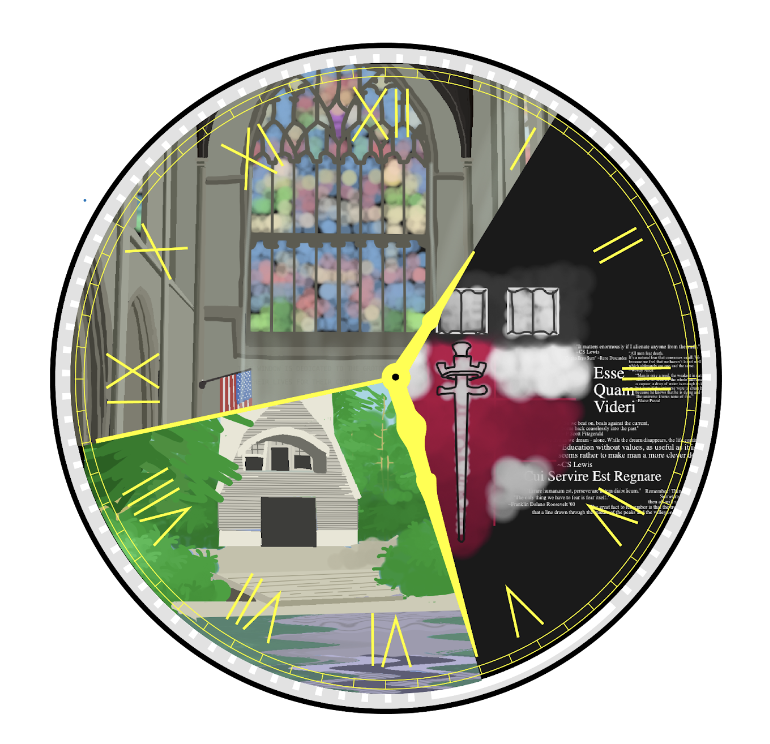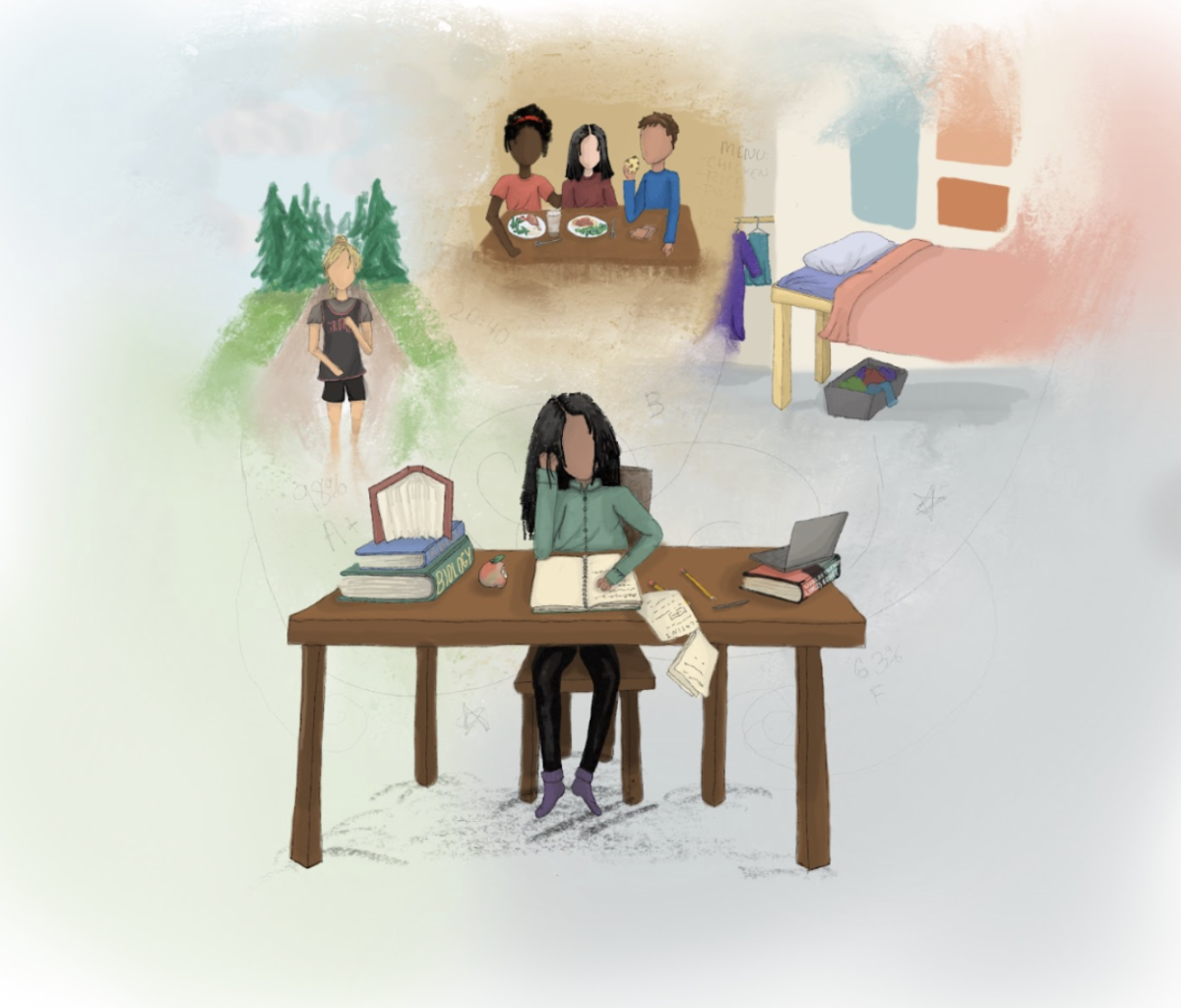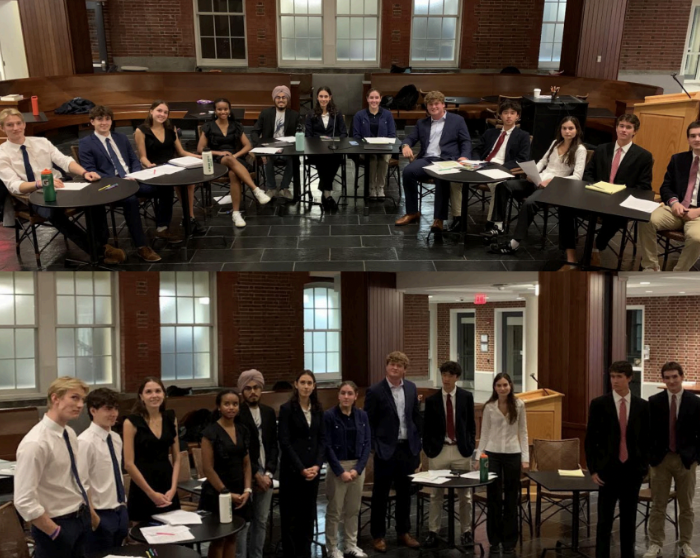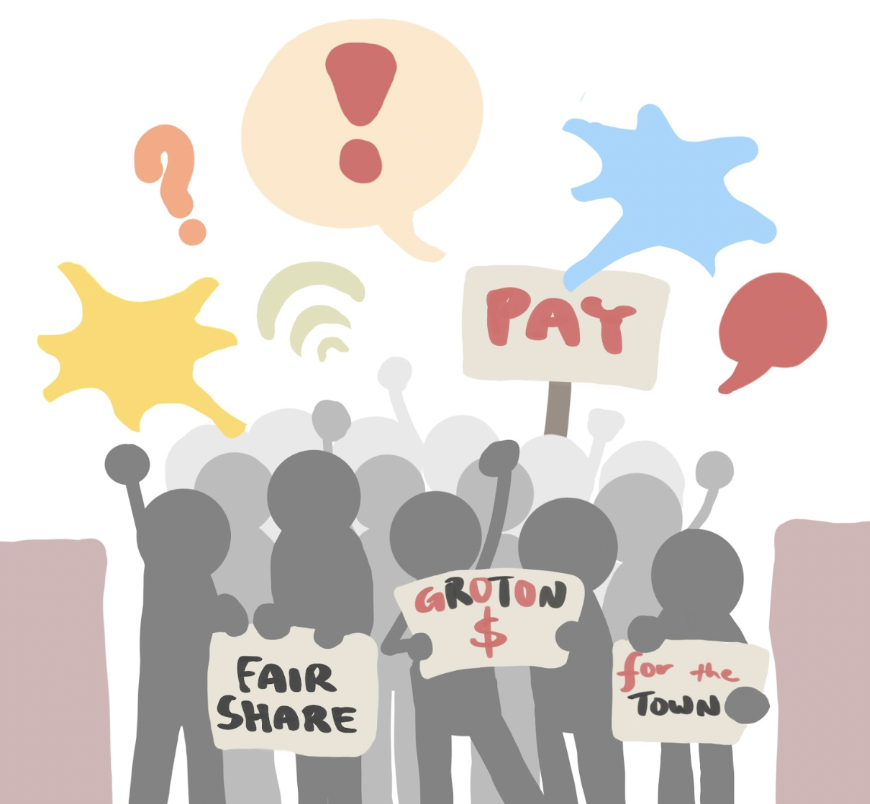Fresh starts are always challenging, especially at a boarding school. Homesickness and nerves about school work, tests, athletic events, and friends are emotions many of us experience. And for these seemingly small anxieties and situations, we all have those times when we want to get something off our chest but don’t want to go to an adult or counselor.
Luckily, at Groton, there’s another (practically around the clock) resource available––and it’s someone who might have been in this same place not so long ago. No matter who you are or how long you have been a part of the Circle, a Peer Counselor’s door is always open.
The Peer Counselor and Peer Tutor systems serve as a way for the Academic Skills and Counseling departments to be represented by more than just faculty. In the new Peer Tutor system created by Margaret Kaneb ’25 and Assistant Director of Academic Skills Anna Martinez, there are 10 coordinators in charge of respective departments of the Peer Tutor program, serving as the “link between students seeking help and tutors,” in the words of Ms. Martinez.
While there are over 40 Peer Tutors across the Upper School, Peer Counselors are a much smaller group of 32 Fifth and Sixth Formers. According to Ms. Martinez, the Peer Tutor and Peer Counselor programs have evolved considerably in her time at Groton into similar but distinctive roles. But to improve the system further, she describes a clear goal. “The system is meant to increase student autonomy.” In both groups, specifically in Peer Counseling, the process is mainly driven by students, which Ms. Martinez sees as “illustrating how wonderful students can be at helping each other,” whether in day-to-day function or even the selection process.
Each spring, the current Fifth Form Peer Counselors come together, along with the counseling center, to read over 60 applications from current Fourth Formers, choosing a final group of 16 students at the end of this multi-stage process. A connection like the one between a student and a Peer Counselor is unlike anything else seen on the Circle.
“Way more students are comfortable talking to a Peer Counselor than I initially thought,” said Peer Counselor Cam Cirone ’25. “It’s an important and different perspective, and peer counselors are a positive figurehead for the student body in general.”
Every Tuesday, all 32 Peer Counselors come together with the Counseling Center to go through specialized training and learn more about the importance of the role, teaching them important values that they live by every day.
“In Sixth Form, we talk a lot more about situations, both hypothetical and current, and how we would solve them,” Peer Counselor Chloe Han ’25 said, “whereas Fifth Form involves more training on how to be a good listener, set boundaries, be responsive in a conversation, and make yourself approachable in the dome and on the Circle.”
On both sides, Peer Counseling provides a simple, healthy method to create trust among students on campus. Cam recalled a particularly memorable experience he had with another student as a Peer Counselor.
“I helped a close friend with a personal issue, and the best part was that a week later, that friend came back and said how much it had helped him.” Cam said. “It was powerful that my advice had such an impact on someone.”
As the school year gets into full swing, the importance of Peer Counselors and Peer Tutors only grows. They serve as more than just mentors; they’re classmates, teammates, and friends.
“We always want to connect with and get to know everyone to make sure they are comfortable in the dorm,” said Chloe. “It can be hard at the beginning to come talk to us, but that is what our role is. Feel free to stop by whenever—we’re not scary.”
In your dorm, simply look around for a little sticker outside someone’s room, indicating that they are a peer counselor. Remember, their door is always open: just knock.






